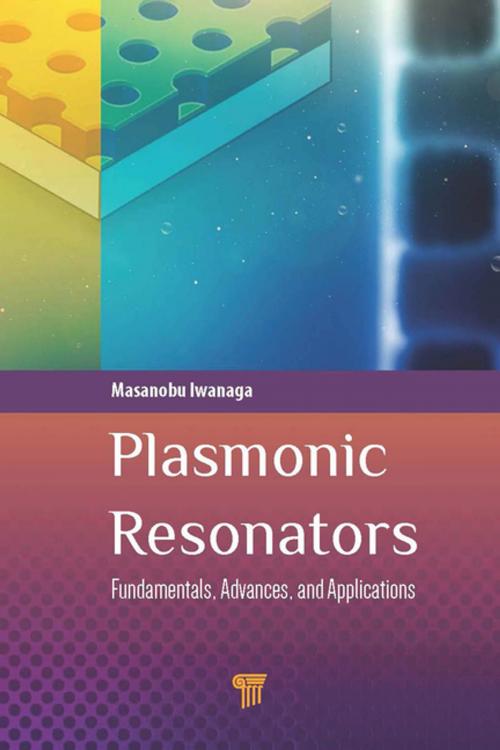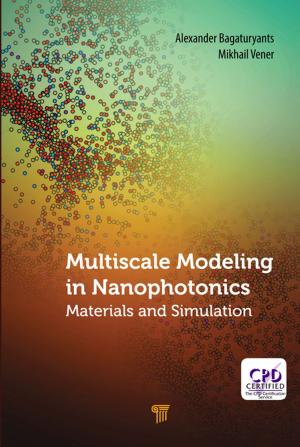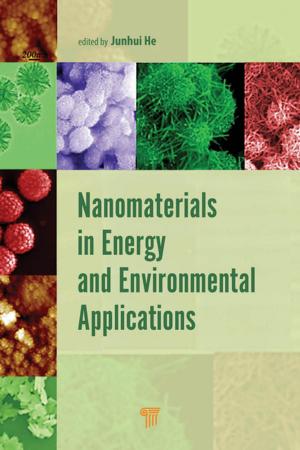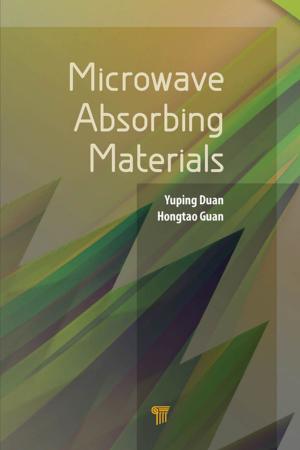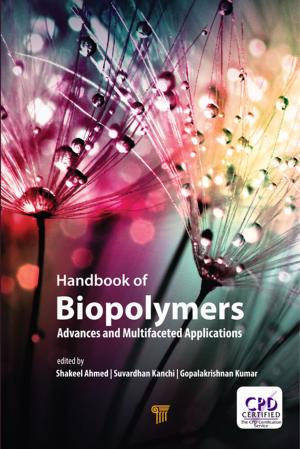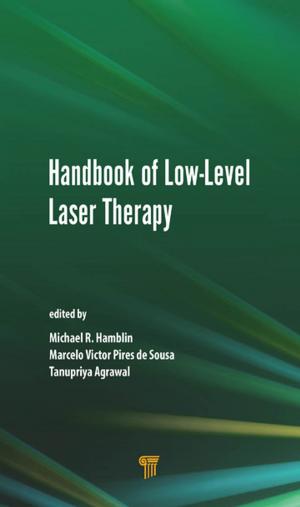Plasmonic Resonators
Fundamentals, Advances, and Applications
Nonfiction, Science & Nature, Science, Chemistry, Physical & Theoretical, Technology, Material Science, Physics, General Physics| Author: | Masanobu Iwanaga | ISBN: | 9781315341040 |
| Publisher: | Jenny Stanford Publishing | Publication: | October 14, 2016 |
| Imprint: | Jenny Stanford Publishing | Language: | English |
| Author: | Masanobu Iwanaga |
| ISBN: | 9781315341040 |
| Publisher: | Jenny Stanford Publishing |
| Publication: | October 14, 2016 |
| Imprint: | Jenny Stanford Publishing |
| Language: | English |
Plasmonic resonators, composed of metallic micro- and nanostructures, belong to the category of excited-state physics on resonances from gigahertz to petahertz. Dynamical physics is in contrast to ground-state physics, which includes thermal states, and is connected to diverse applications to enhance existing photo-induced effects and phenomena such as plasmon-enhanced photoluminescence and Raman scattering. This book has three main aims: to provide fundamental knowledge on plasmonic resonators, to explain diverse plasmonic resonators, and to stimulate further development in plasmonic resonators.
Plasmon-related studies, which are sometimes called plasmonics and include a substantial portion of metamaterials, have shown significant development since the 1980s. The piled-up results are too numerous to study from the beginning, but this book summarizes those results, including the history (past), all the possible types of plasmonic resonators (present), and their wide range of applications (future). It provides the basics of plasmons and resonant physics for undergraduate students, the systematic knowledge on plasmonic resonators for graduate students, and cutting-edge and in-depth information on plasmon-enhancement studies for researchers who are not experts in plasmonics and metamaterials, thereby benefitting a wide range of readers who are interested in the nanotechnology involving metallic nanostructures.
Plasmonic resonators, composed of metallic micro- and nanostructures, belong to the category of excited-state physics on resonances from gigahertz to petahertz. Dynamical physics is in contrast to ground-state physics, which includes thermal states, and is connected to diverse applications to enhance existing photo-induced effects and phenomena such as plasmon-enhanced photoluminescence and Raman scattering. This book has three main aims: to provide fundamental knowledge on plasmonic resonators, to explain diverse plasmonic resonators, and to stimulate further development in plasmonic resonators.
Plasmon-related studies, which are sometimes called plasmonics and include a substantial portion of metamaterials, have shown significant development since the 1980s. The piled-up results are too numerous to study from the beginning, but this book summarizes those results, including the history (past), all the possible types of plasmonic resonators (present), and their wide range of applications (future). It provides the basics of plasmons and resonant physics for undergraduate students, the systematic knowledge on plasmonic resonators for graduate students, and cutting-edge and in-depth information on plasmon-enhancement studies for researchers who are not experts in plasmonics and metamaterials, thereby benefitting a wide range of readers who are interested in the nanotechnology involving metallic nanostructures.
